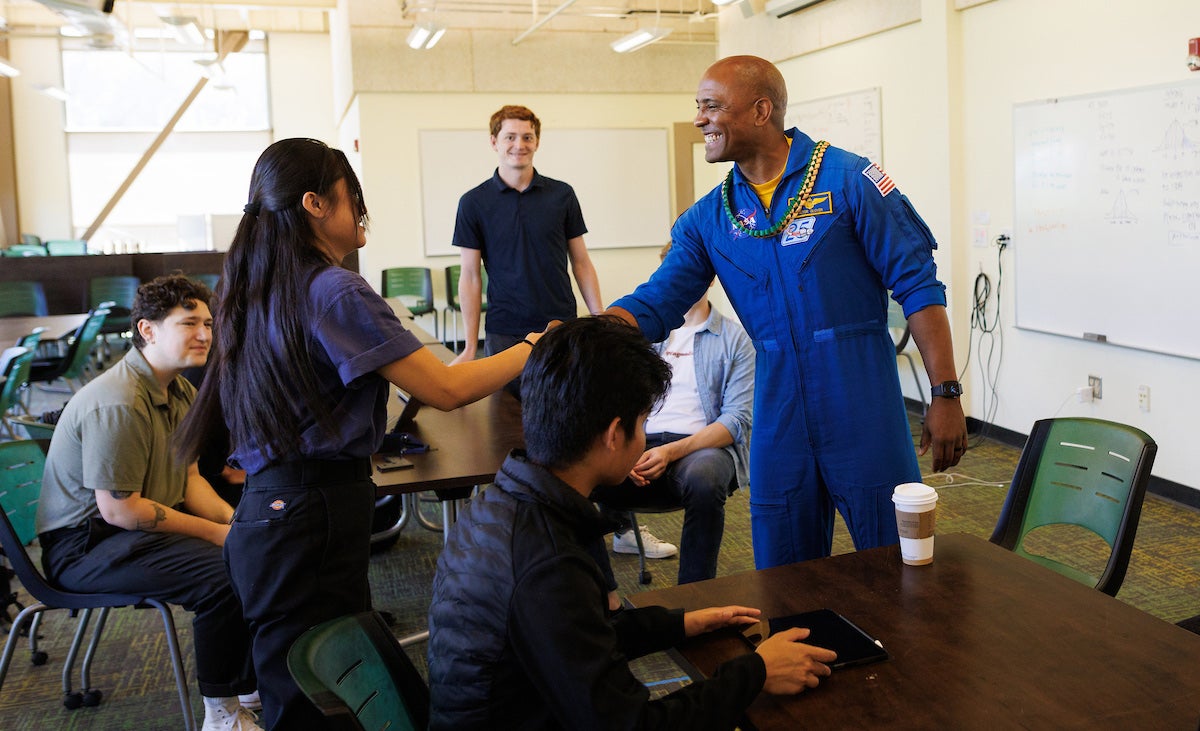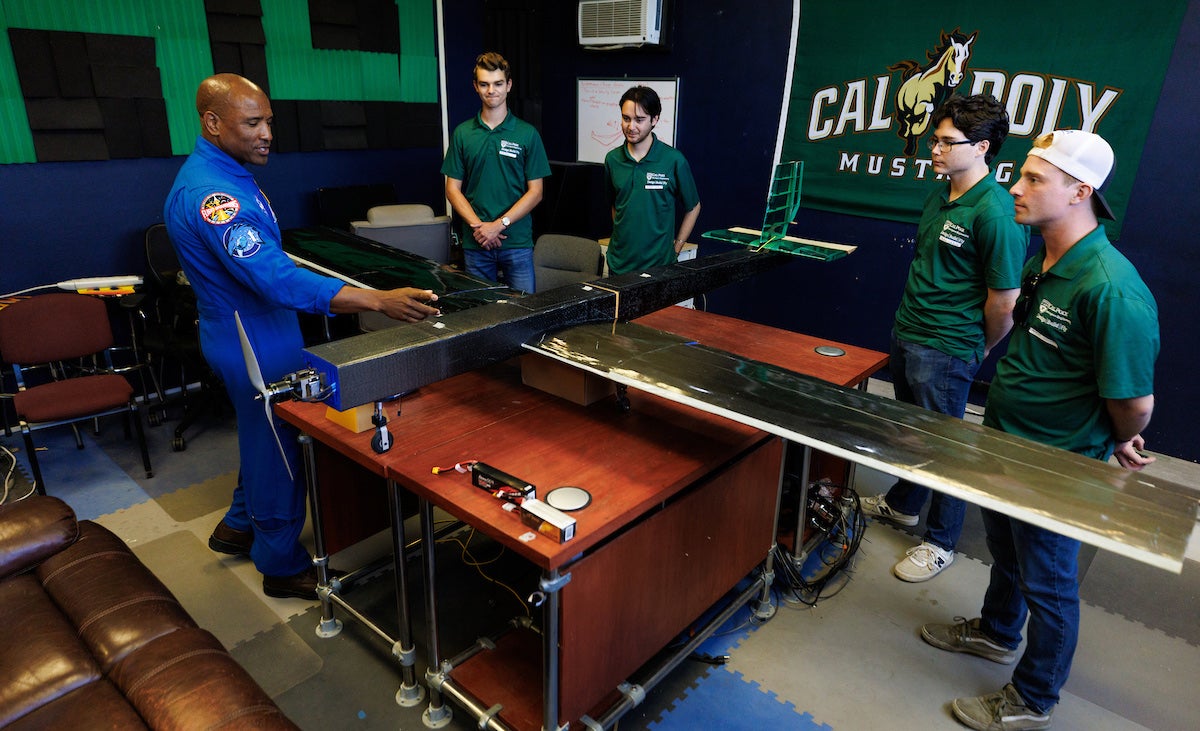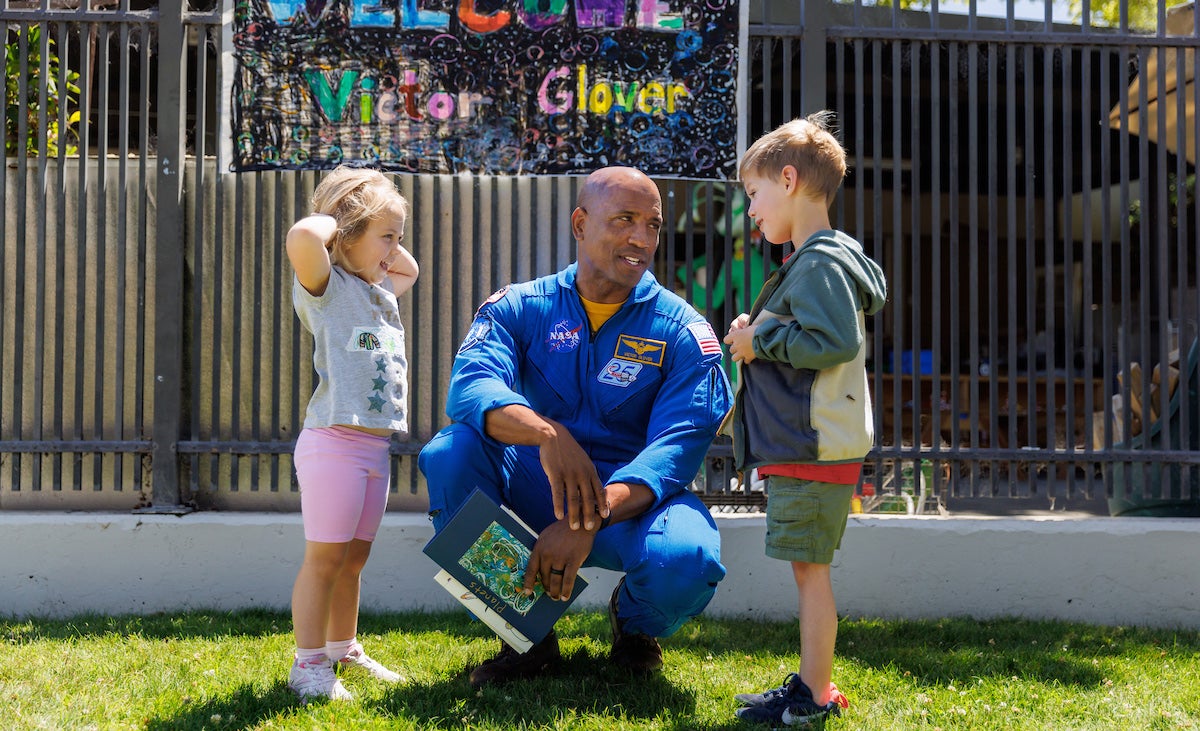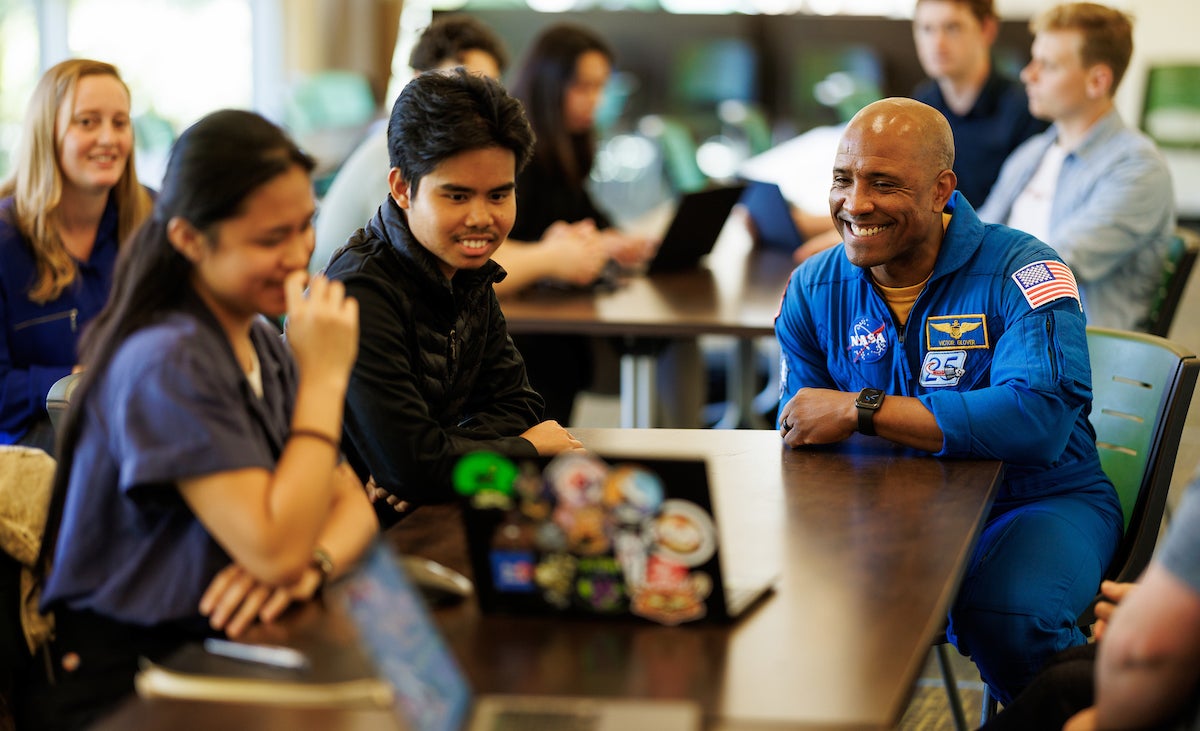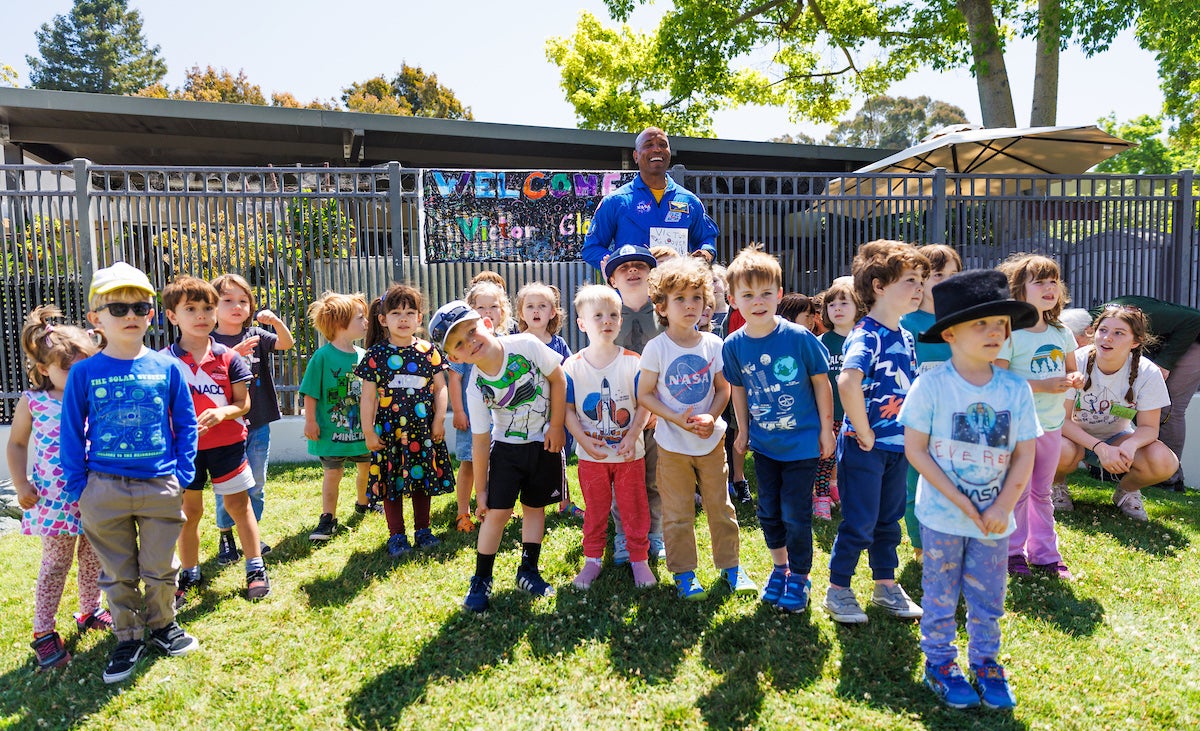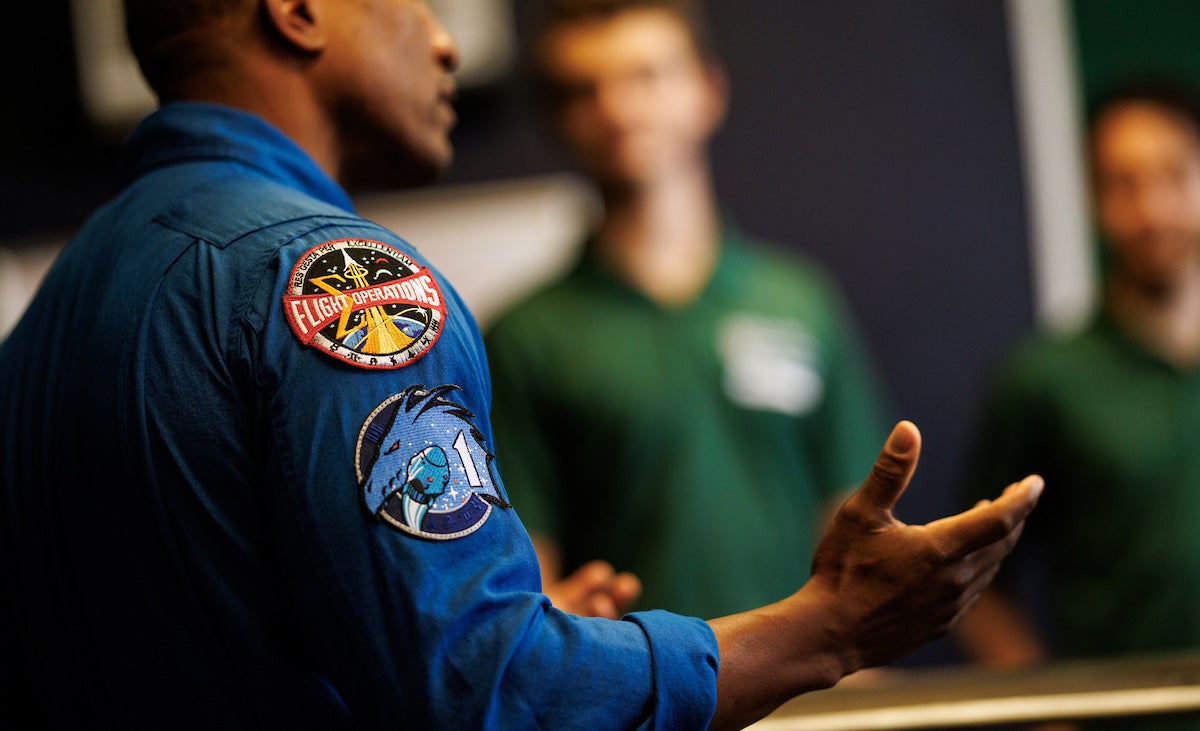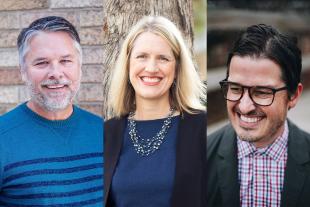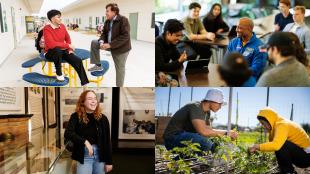'Over the Moon.' Astronaut Victor Glover Connects with Students of All Ages at Cal Poly
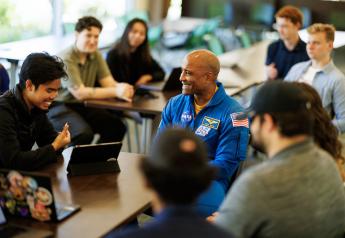
At the end of May, in the thick of training for NASA’s upcoming lunar mission, alumnus and astronaut Victor Glover made his way back to 1 Grand Avenue. He spoke with students working to answer the challenges of space and flight — and stopped by the Preschool Learning Lab to answer some very frank questions from some of the youngest kids on campus.
“It’s always great to be here on campus,” Glover said. “Cal Poly has changed so much over the years and its really neat to see, but some things don’t change, like the focus on students.”
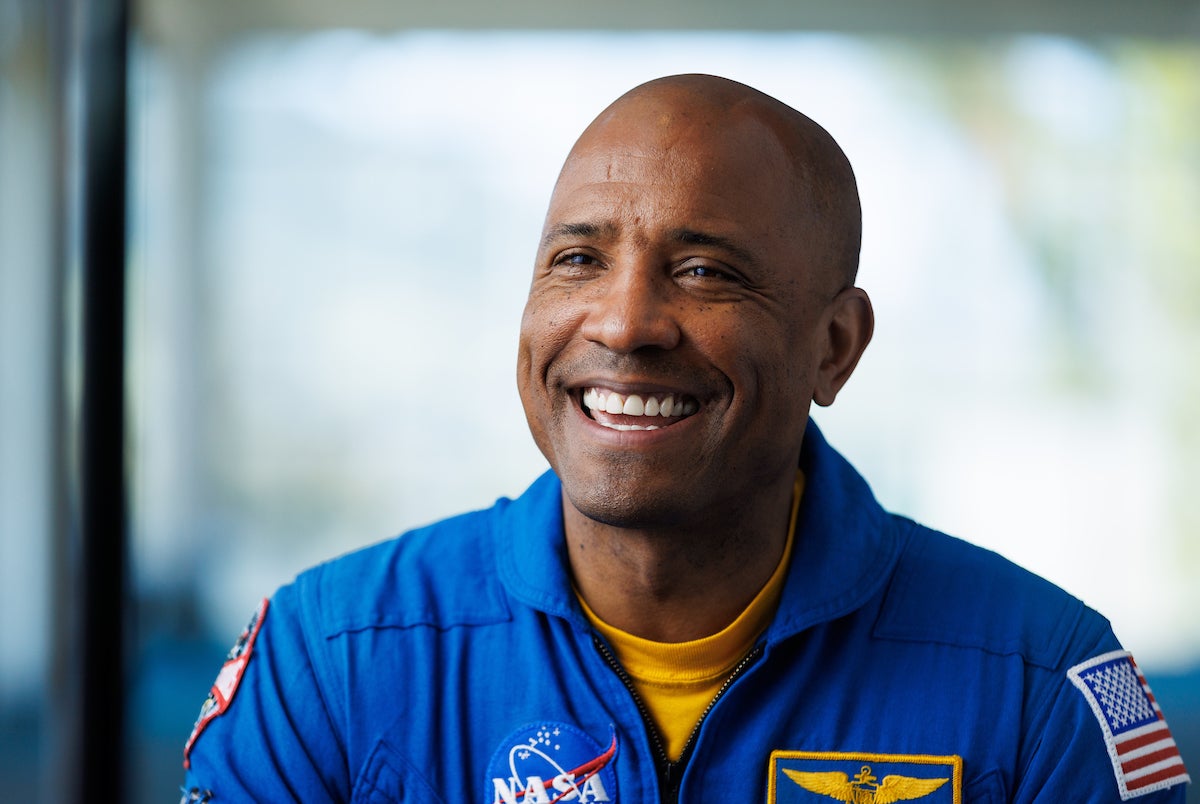
Two of those students are his daughters — and he’s eagerly awaiting this fall, when his third daughter will become the newest Mustang in the family.
“I’m over the moon,” Glover said, noting the obvious pun. “This is not an easy school, but nothing risked, nothing gained. They’re growing, and I just love watching them become the young ladies they’re going to be.”
Last April, Glover was named the pilot of the crew that will travel around the moon on Artemis II, the first crewed mission on NASA’s path to establishing a long-term lunar presence for science and exploration. He previously served as pilot and second-in-command on the SpaceX Crew Dragon, which launched in 2020, and became the first African American astronaut to complete a long-term stay on the International Space Station.
When asked if he ever envisioned whether he’d be preparing to pilot a lunar mission as an engineering student at Cal Poly, Glover chuckled.
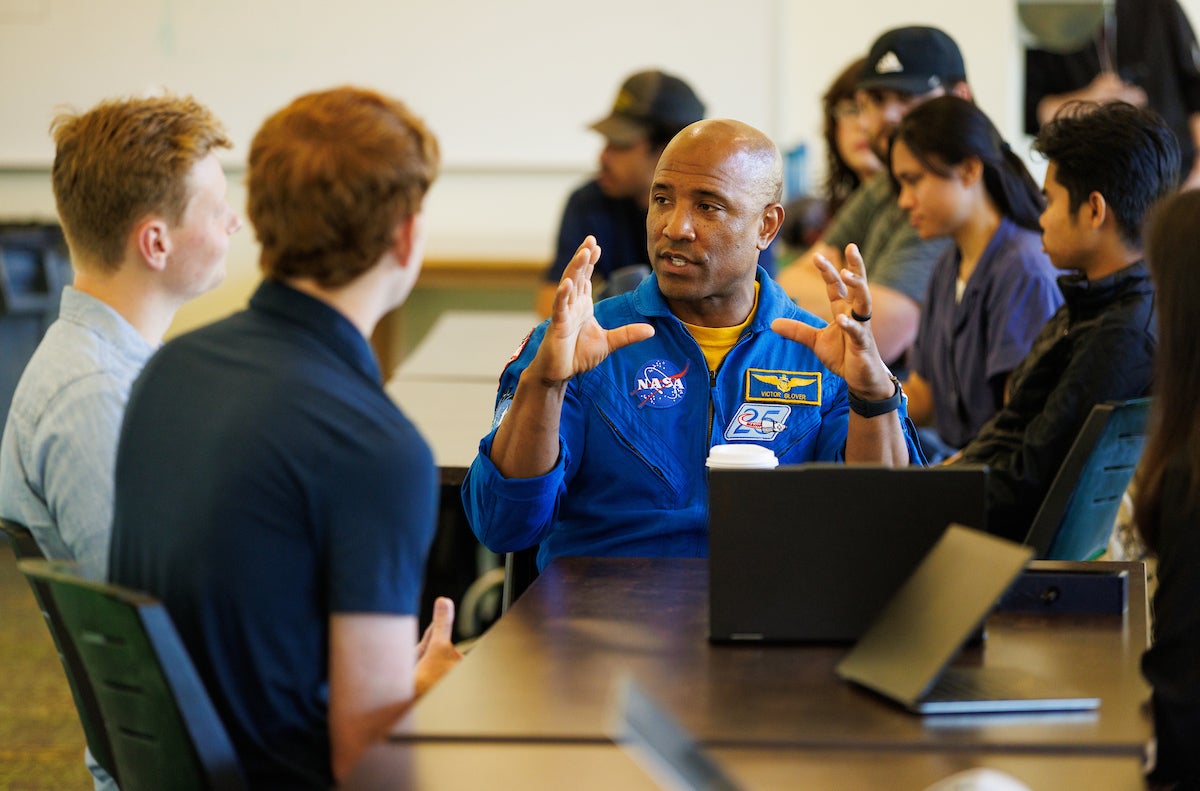
“I just wanted to graduate!” the Navy pilot said, adding that he set his sights on always reaching his next goal. When he was selected for the astronaut program in 2013, going to the moon was not one of the missions on the horizon. “It’s still pretty unreal.”
At Glover’s first stop of the day, he spoke with students developing a comprehensive, all-in-one anaerobic exercise solution to counteract muscular dystrophy experienced by astronauts, sharing his firsthand expertise from living aboard the ISS.
During their conversation, Glover highlighted the importance of interdisciplinary collaboration, noting that his experience as a wrestler at Cal Poly has helped inform how he personally works with exercise scientists at NASA.
“Interdisciplinary is everything — it’s the way real-world problems are addressed,” he said, encouraging the students to reach out to student-athletes and kinesiology students for feedback as they continue developing their project.
And after speaking with the team of students and faculty constructing a model rover for the Mars Society’s University Rover Challenge, they presented him with a special gift: a graduation lei.
“Good luck to you,” he said, smiling, before briefly reflecting on his time at Cal Poly. “If I could do it all again I would — I’d love to keep what I know, but I’d do it all again in a heartbeat.”
Then some very curious and excited children at the Preschool Learning Lab asked Glover the real questions: how do astronauts use the bathroom, and where did he park his rocket?
“NASA doesn’t let me just check out a rocket,” he answered, grinning. “It’s a great way to travel, I highly recommend it.”
He also shared with the kids that his call sign is Ike, short for “I Know Everything.”
“Nobody gets Maverick from ‘Top Gun,’ that’s too good of a call sign,” he said. “Call signs are usually a reminder of something we did wrong or messed up. It’s constant education, if you will.”
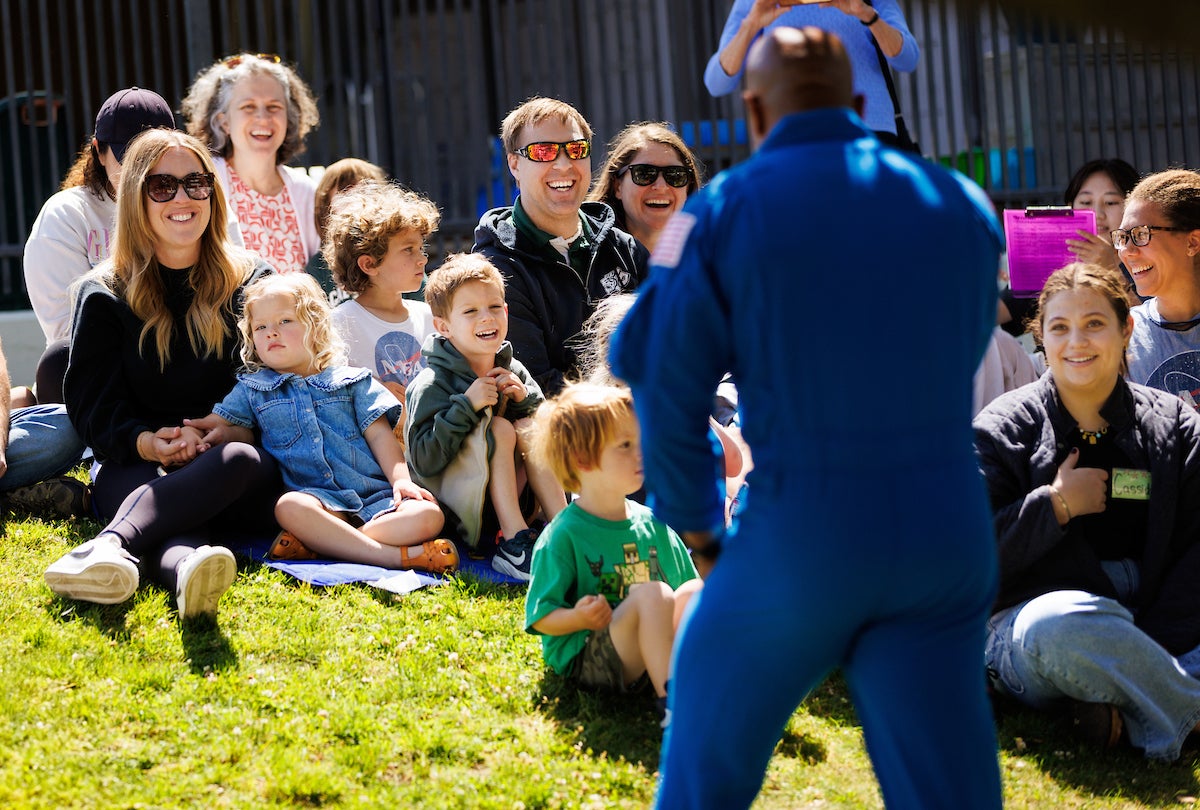
Glover also shared with the children that he and his SpaceX team were allowed to give their spacecraft its call sign: Resilience.
“It’s about growing when things are hard, and doing hard stuff, and knowing that it’s going to make you better,” he told the kids. “And SpaceX was okay with it, so they actually called us that on the radio, and that was a huge win for us.”
Glover also answered questions about exercising in space, what it feels like to take off in a rocket and whether he’s seen aliens.
“I did not see aliens, but there is life in space,” he said, adding that the strangest thing he’s ever seen in space is a human on their first or second day up there.
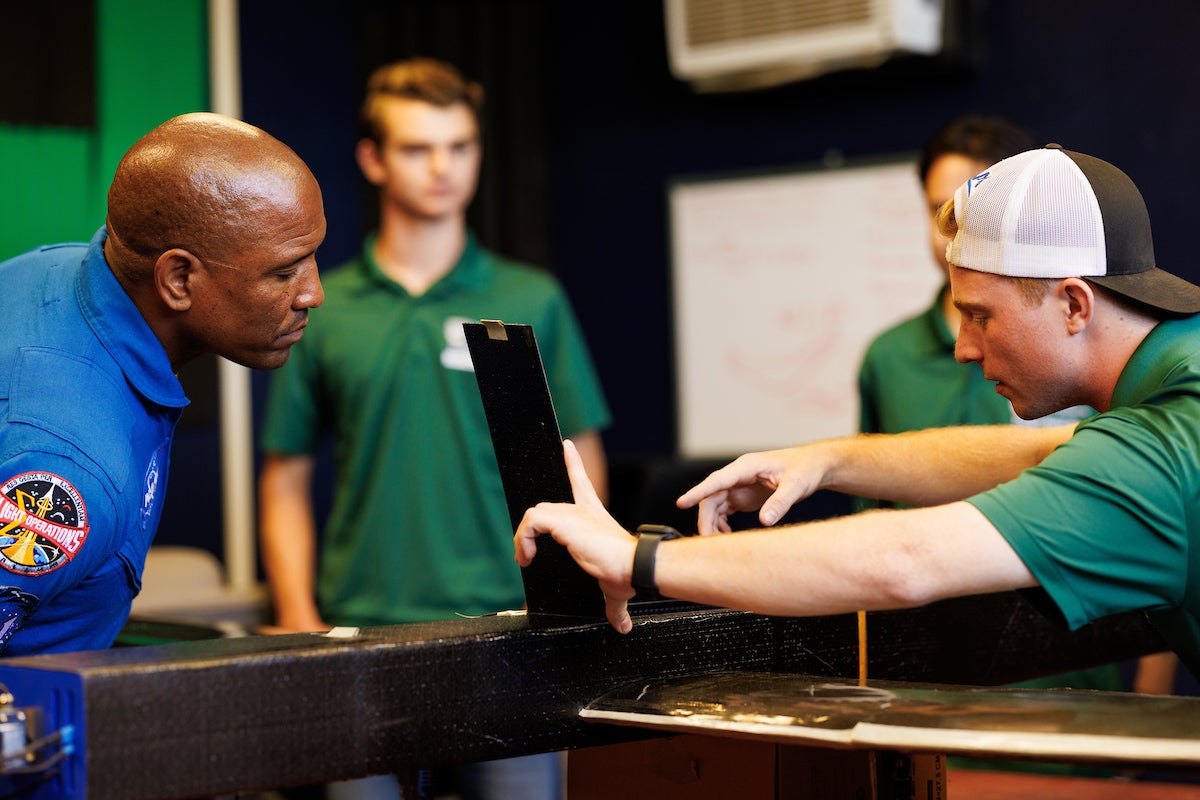
His favorite food aboard the ISS? Tomato basil soup: it can be eaten cold, hot, or with chicken — two meals and a sauce.
Glover wrapped up the day by speaking with students creating a remotely controlled autonomous research plane aiding Cal Poly’s Design Build Fly team in modeling flight dynamics.
Throughout his visit, he made it clear: all eyes are on Artemis.
“NASA has been talking about this since 1972. I’m really excited for it — for the agency and for our country, and for the planet — humanity gets to do this,” he said. “I really think it’s poetic; whenever we do something really big, we call it a moonshot. It’s become a common phrase, but it’s an uncommon action. I really think it’s neat that our generation gets a chance to do this.”
Want more Learn by Doing stories in your life? Sign up for our monthly newsletter, the Cal Poly News Recap!

